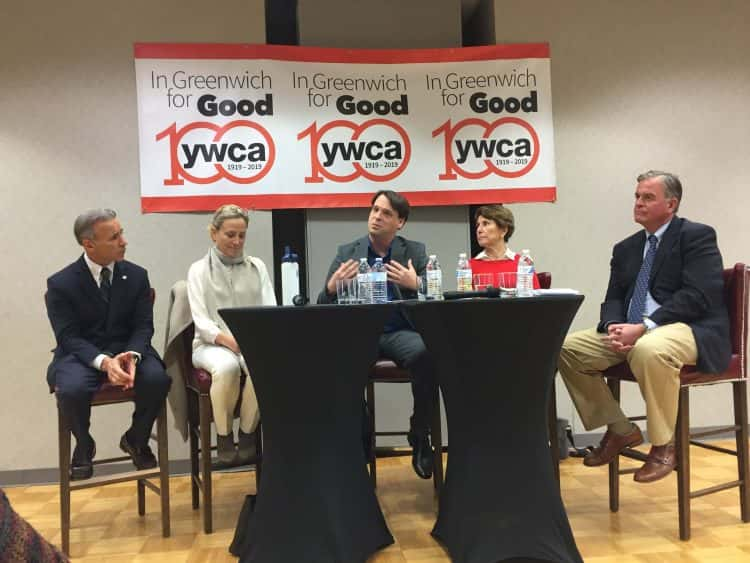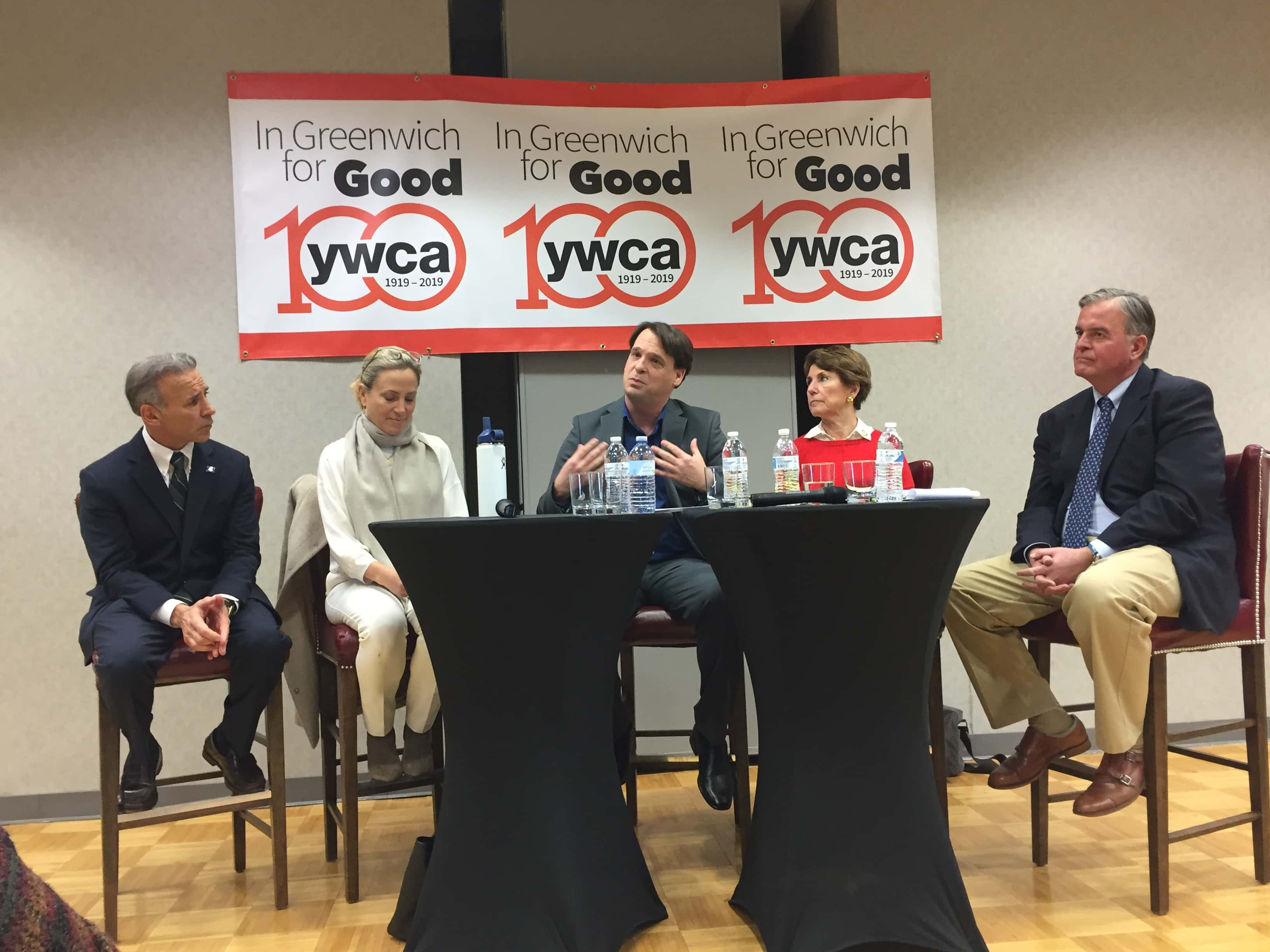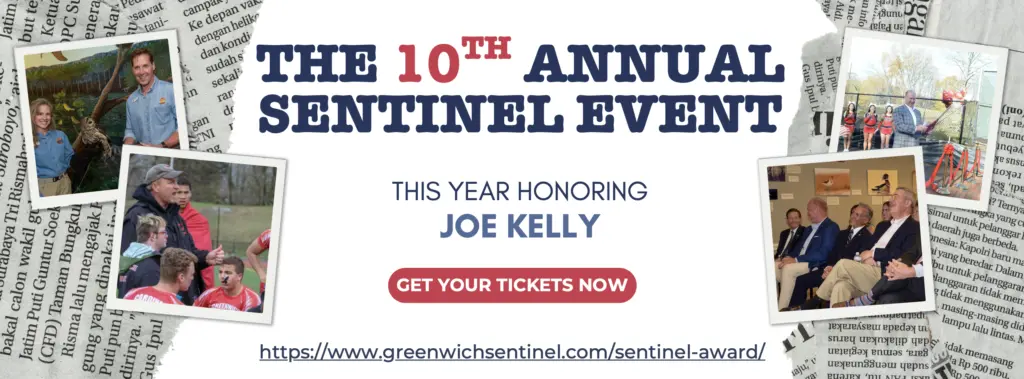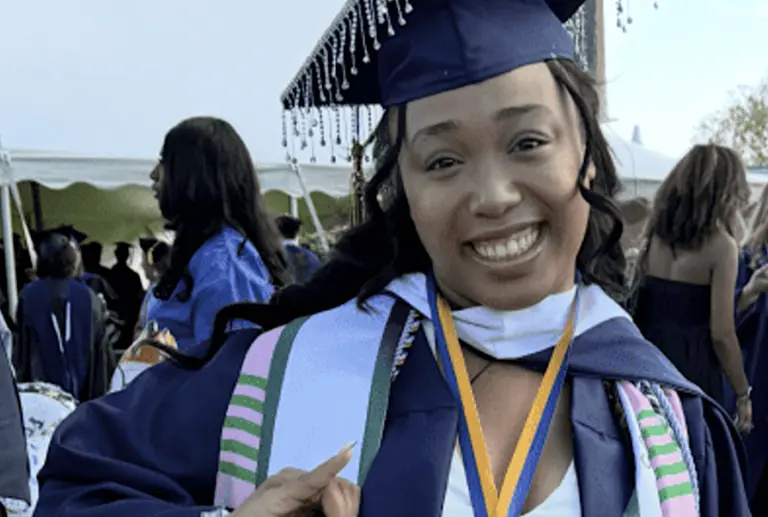

By Richard Kaufman
Two-and-a-half months after an historic election that shook-up Greenwich’s delegation to Hartford, State Reps. Livvy Floren (R-149), Steve Meskers (D-150), Fred Camillo (R-151), and State Sen. Alex Bergstein (D-36), stressed the importance of unity and bipartisanship in tackling Connecticut’s biggest problems.
The delegation gathered at the YWCA of Greenwich for a one-hour panel discussion last weekend that touched on the latest legislative session and various issues that will garner attention in the coming weeks and months.
The delegation agreed that, while there may be disagreements, there will also be common ground on a number of topics.
Floren, who began her 10th term last month, noted that, personally, she’s been on the yay side of all votes on bills 89 percent of the time. “If you stay focused on the issues that matter, you can almost always build a coalition of consensus,” she said.
“We acknowledge there are going to be some issues we disagree on. I hope that we can show you that we can disagree and still be friends, and still work together on most other things,” Camillo added. “We’re actually aligned on a lot of things, too, which people don’t realize. I pledge to you that the four of us, when we disagree, we’ll do it in a respectful way that will make you all proud.”
Meskers said the delegation shares the common vision of a healthy, well-represented and inclusive community. Bergstein said that she’s not acting as a politician or thinking about the next campaign.
“I just want to go in, take a fresh look at the system, see where we could make changes to make things run better, and also tackle the biggest issues that face our state,” she said. “We’re at a critical point in our state where we can actually have a breakthrough if we really all work together. This is a new chapter for Connecticut.”
The panel was organized by March On Greenwich, and moderated by Matt DeRienzo, Vice President of News and Digital Content at Hearst Connecticut.
Perhaps the most hot button issue so far in this legislative session is the issue of re-installing tolls on Connecticut highways.
Bergstein, who has held forums in New Canaan, Stamford and Greenwich where protestors have voiced their opposition to tolls, said the topic is an example of the difficult conversations that need to take place in the future.
Bergstein, vice chair of the legislature’s Transportation Committee, presented a bill recently (SB00102) that would install tolls on main highways and set per-mile fees for cars and trucks. The bill would also require that the money collected from tolls be deposited into the Special Transportation Fund and in a proposed infrastructure bank.
She said an estimated 30-40 percent of all traffic on Connecticut’s major highways are from out of state, and that tolls would create a revenue stream for the state that would not use taxpayer dollars.
“If you had a leak in your roof, and your neighbor said, ‘I’m willing to pay for half of the repairs,’ you wouldn’t take that? Of course you would,” she said.
Meskers spoke in support of tolls, saying that, “someone has to pay for the use of the roads.”
“Right now, I’m paying for 100 percent of it,” he said. “We’re running a multi-state charity on our highways, and I have an issue with it.”
Floren recalled a forum she hosted with the previous delegation to Hartford in which former Transportation Commissioner, James Redeker, offered alternative solutions to installing tolls that would cure infrastructure ills around the state.
One solution has already been put in place after voters voted last November to impose a lockbox on the Special Transportation Fund.
“Commissioner Redeker said that if we had a four cent per gallon gasoline tax, that would beyond pay for [infrastructure needs],” Floren said. “That’s good news in a way, because the price of gasoline is going down, our cars are getting better mileage, and eventually we’re not going to need gasoline. The beauty of that is, everybody shares it equally.”
Camillo said he knows a local businessman in Greenwich who owns a trucking business and that tolls would hurt his pockets.
“He did the calculations of his trips each day, and yearly it would cost him $72,000 extra. That’s not being paid by out of state people, that’s being paid by him, which if he turns around and passes that cost off to all of us, we’re going to be absorbing that cost,” Camillo said. Connecticut spends $100,000 per mile administratively. The national average is $9,600. There’s your big problem right there.”
On the issue of guns, Floren said there are strict ordinances and laws about gun storage, but more can be done to tighten things up. “I have an F rating with the NRA, working on an F-minus,” she said.
Floren noted a bill brought forth by Bergstein, which would allow police officers to ask people to see their concealed carry permit. “I think you should carry that with you at all times, just the way you carry your drivers’ license,” Floren said.
Bergstein also highlighted other bills that would ban ghost guns and 3D printed guns.
Previewing the rest of the legislative session, Meskers championed a bill he put forward that would make the Connecticut Green Bank a department of the Infrastructure Bank to ensure green technology is employed wherever possible in infrastructure projects.
Floren hopes to see more done with pesticide control, and Camillo said he’s going to push a bill to, “limit the disclosure of certain voter registration data to candidates, candidate committees and political committees only and for noncommercial purposes only, and to require that newly admitted electors be notified of such disclosure.”
Whatever the issue is, the delegation said they are going to do what’s right for its constituents. It urged the public to go to cga.ct.gov to see what bills each legislator is putting forward, and to communicate ideas, comments or concerns.
Camillo urged politeness and civil discourse if there are disagreements on issues. “Don’t be rude. If there’s something we did you don’t like, just call us. We’d be happy to meet with you,” he said.
Bergstein said she’s asking for the public’s help in identifying issues in the state.
“We want to be efficient, and effective and deliver results for you. That’s what we are committed to,” said Bergstein. “It’s not about making us look good, it’s about making the state succeed, making your lives better and moving forward in a way we can all be proud of.”





